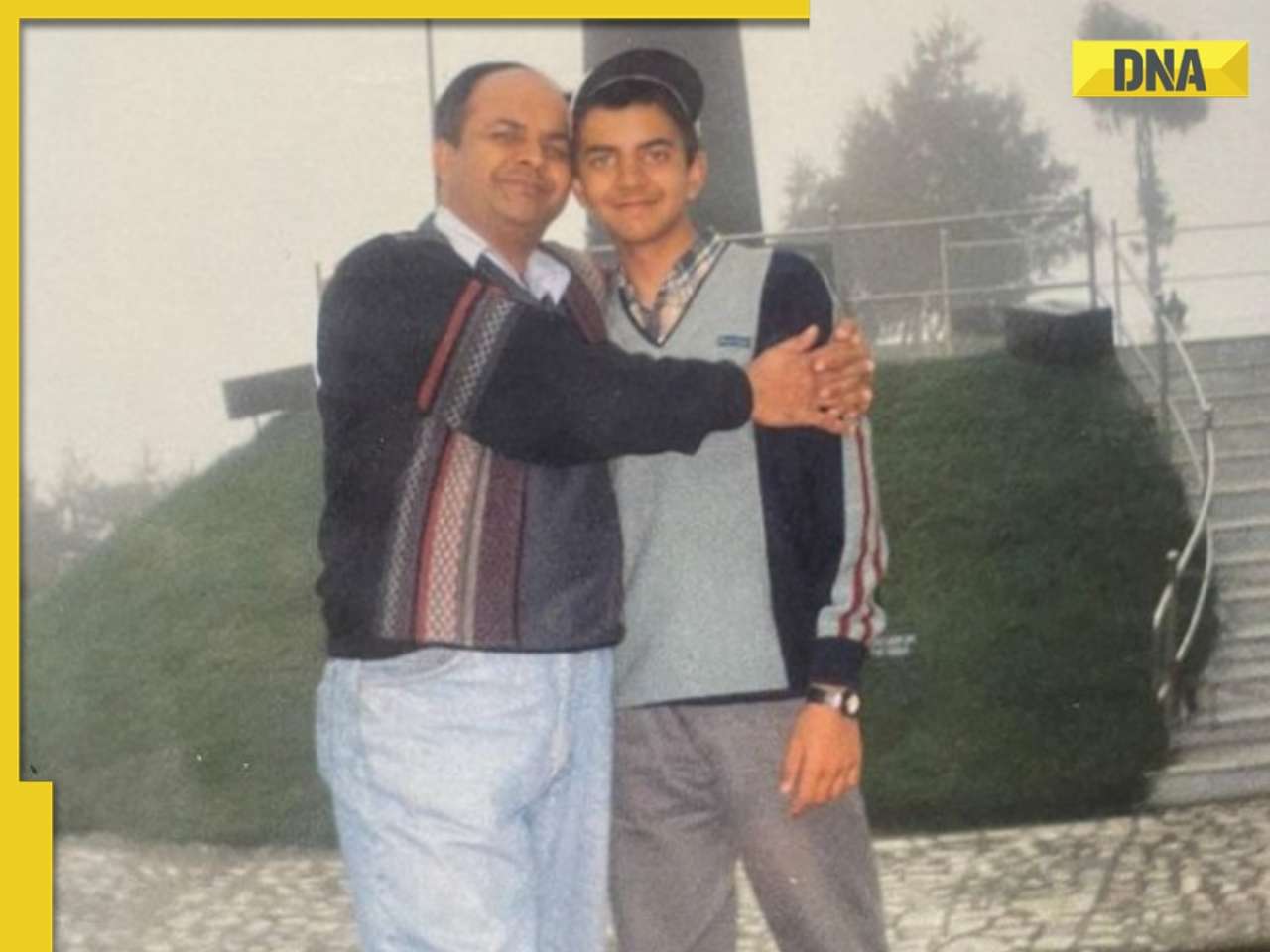Most of the past one year, the media industry has been busy resisting the proposed Broadcasting Bill, which it believes could hamper its free functioning.
Want industry status, reduction in FBT NEW DELHI: Most of the past one year, the media industry has been busy resisting the proposed Broadcasting Bill, which it believes could hamper its free functioning.
Nevertheless, the growth in this industry has been phenomenal. On last count, there were as many as 313 television channels beaming into the country. In direct-to-home (DTH) broadcasting, stage has been set for competition between multiple players, as against between only two private operators till now.
With 122 million TV homes, out of which 71 million are cable and satellite connections, broadcasting is a high-opportunity business in India. Plenty of platform choice like direct-to-home, conditional access system and internet protocol television, makes TV broadcasting even more exciting.
Although information and broadcasting (I&B) minister P R Dasmunsi was the one to introduce mandatory-sharing ordinance for sports telecast, that came up for criticism from private channels, he recently pointed out that the potential in the media sector is huge.
Dasmunsi said, “There is a huge potential for development of broadcasting in India and we have a lot of advanced technologies available with us. What we need to have is proper selection of technologies suiting our requirements.”
The minister added, “Over the past few years, the broadcasting sector in India has witnessed all round growth.” However, the finance ministry has been rather quiet on
giving tax relief and any other sops to the media and broadcasting industry. Media companies, both TV channels and DTH players, have once again given a list of their budget expectations, despite disappointment in the previous few years. Stakeholders are hoping that this year would be different.
The Indian Broadcasting Foundation (IBF), that represents the television industry, has told the finance ministry that the broadcasting sector should be included under `Industrial Undertaking’ as defined by the Section 72A of the Income Tax Act, 1961.
The IBF memorandum to the FM points out that “Section 72A of the Income Tax Act, 1961, provides an incentive to robust companies to take over and amalgamate with the companies which would otherwise become a burden on the economy.”
The memorandum states that the basic objective of Section 72A was to revive the financially weak businesses and synergise the business to achieve better growth, better profits, recovery of bad advances by banks and institutions, which will result in higher tax revenues and increase in employment. But, while Section 72A of the Income Tax Act defines the term `Industrial Undertaking’, it does not cover the broadcasting sector.
When the term `Industrial Undertaking’ was introduced, broadcasting industry was in a nascent stage, and therefore the omission, it is believed.
IBF has also demanded that the base for fringe benefit tax (FBT) should be reduced from 20% to 5% for the TV broadcasting industry, as in the case of computer software industry.
Also, customs and excise duties in the entertainment sector should be on par with the IT industry. Currently, custom duty plus countervailing duty and cess on broadcast equipment is 36.64%, against 21.32% for computers and 4% for cellphones, says the IBF note.
In addition, the broadcasting industry wants the countervailing duty and cess charges to be removed on set-top boxes that are a must for the conditional access system (CAS).
While the customs duty on set-top boxes were reduced to zero, CVD, cess and other duties come to 21.32%. IBF has suggested that the government should exempt CVD, cess charges and additional duties on set-top boxes for the next 10 years.
IBF also wants excise exemption for 10 years. A ‘national fund’ for cable infrastructure has also been sought.
An IBF official told DNA Money, “The duties in the broadcasting sector should be on par with the information technology (IT) sector.” “Also there should be no discrimination with the print media vis-à-vis service tax,” he said.
The recommendations of the broadcasting industry include bringing custom and excise duties on broadcasting equipment on par with IT equipment; reducing the custom duty on set-top boxes to zero; exempting broadcasting industry from service tax; and expansion of the definition of `Industrial Undertaking’. The total estimated advertising revenue across television media in 2007 was Rs 7,400 crore.
m_nivedita@dnaindia.net ![submenu-img]() Anant Raj Ventures into tier 2 and tier 3 cities, pioneering growth in India’s real estate sector
Anant Raj Ventures into tier 2 and tier 3 cities, pioneering growth in India’s real estate sector![submenu-img]() Sophie Turner reveals she wanted to terminate her first pregnancy with Joe Jonas: 'Didn't know if I wanted...'
Sophie Turner reveals she wanted to terminate her first pregnancy with Joe Jonas: 'Didn't know if I wanted...'![submenu-img]() Meet outsider who was given no money for first film, battled depression, now charges Rs 20 crore per film
Meet outsider who was given no money for first film, battled depression, now charges Rs 20 crore per film![submenu-img]() This is owner of most land in India, owns land in every state, total value is Rs...
This is owner of most land in India, owns land in every state, total value is Rs...![submenu-img]() Meet man who built Rs 39832 crore company after quitting high-paying job, his net worth is..
Meet man who built Rs 39832 crore company after quitting high-paying job, his net worth is..![submenu-img]() Meet woman who first worked at TCS, then left SBI job, cracked UPSC exam with AIR...
Meet woman who first worked at TCS, then left SBI job, cracked UPSC exam with AIR...![submenu-img]() Meet engineer, IIT grad who left lucrative job to crack UPSC in 1st attempt, became IAS, married to an IAS, got AIR...
Meet engineer, IIT grad who left lucrative job to crack UPSC in 1st attempt, became IAS, married to an IAS, got AIR...![submenu-img]() Meet Indian woman who after completing engineering directly got job at Amazon, then Google, Microsoft by using just...
Meet Indian woman who after completing engineering directly got job at Amazon, then Google, Microsoft by using just...![submenu-img]() Meet man who is 47, aspires to crack UPSC, has taken 73 Prelims, 43 Mains, Vikas Divyakirti is his...
Meet man who is 47, aspires to crack UPSC, has taken 73 Prelims, 43 Mains, Vikas Divyakirti is his...![submenu-img]() IIT graduate gets job with Rs 100 crore salary package, fired within a year, he is now working as…
IIT graduate gets job with Rs 100 crore salary package, fired within a year, he is now working as…![submenu-img]() DNA Verified: Is CAA an anti-Muslim law? Centre terms news report as 'misleading'
DNA Verified: Is CAA an anti-Muslim law? Centre terms news report as 'misleading'![submenu-img]() DNA Verified: Lok Sabha Elections 2024 to be held on April 19? Know truth behind viral message
DNA Verified: Lok Sabha Elections 2024 to be held on April 19? Know truth behind viral message![submenu-img]() DNA Verified: Modi govt giving students free laptops under 'One Student One Laptop' scheme? Know truth here
DNA Verified: Modi govt giving students free laptops under 'One Student One Laptop' scheme? Know truth here![submenu-img]() DNA Verified: Shah Rukh Khan denies reports of his role in release of India's naval officers from Qatar
DNA Verified: Shah Rukh Khan denies reports of his role in release of India's naval officers from Qatar![submenu-img]() DNA Verified: Is govt providing Rs 1.6 lakh benefit to girls under PM Ladli Laxmi Yojana? Know truth
DNA Verified: Is govt providing Rs 1.6 lakh benefit to girls under PM Ladli Laxmi Yojana? Know truth![submenu-img]() In pics: Taarak Mehta Ka Ooltah Chashmah actress Deepti Sadhwani dazzles in orange at Cannes debut, sets new record
In pics: Taarak Mehta Ka Ooltah Chashmah actress Deepti Sadhwani dazzles in orange at Cannes debut, sets new record![submenu-img]() Ananya Panday stuns in unseen bikini pictures in first post amid breakup reports, fans call it 'Aditya Roy Kapur's loss'
Ananya Panday stuns in unseen bikini pictures in first post amid breakup reports, fans call it 'Aditya Roy Kapur's loss'![submenu-img]() Remember Harsh Lunia? Just Mohabbat child star, here's how former actor looks now, his wife is Bollywood's popular...
Remember Harsh Lunia? Just Mohabbat child star, here's how former actor looks now, his wife is Bollywood's popular...![submenu-img]() Mother's Day 2024: Bollywood supermoms who balance motherhood, acting, and run multi-crore businesses
Mother's Day 2024: Bollywood supermoms who balance motherhood, acting, and run multi-crore businesses![submenu-img]() Rocky Aur Rani's Golu aka Anjali Anand shocks fans with drastic weight loss without gym, says fitness secret is...
Rocky Aur Rani's Golu aka Anjali Anand shocks fans with drastic weight loss without gym, says fitness secret is...![submenu-img]() Haryana Political Crisis: Will 3 independent MLAs support withdrawal impact the present Nayab Saini led-BJP government?
Haryana Political Crisis: Will 3 independent MLAs support withdrawal impact the present Nayab Saini led-BJP government?![submenu-img]() DNA Explainer: Why Harvey Weinstein's rape conviction was overturned, will beleaguered Hollywood mogul get out of jail?
DNA Explainer: Why Harvey Weinstein's rape conviction was overturned, will beleaguered Hollywood mogul get out of jail?![submenu-img]() What is inheritance tax?
What is inheritance tax?![submenu-img]() DNA Explainer: What is cloud seeding which is blamed for wreaking havoc in Dubai?
DNA Explainer: What is cloud seeding which is blamed for wreaking havoc in Dubai?![submenu-img]() DNA Explainer: What is Israel's Arrow-3 defence system used to intercept Iran's missile attack?
DNA Explainer: What is Israel's Arrow-3 defence system used to intercept Iran's missile attack?![submenu-img]() Sophie Turner reveals she wanted to terminate her first pregnancy with Joe Jonas: 'Didn't know if I wanted...'
Sophie Turner reveals she wanted to terminate her first pregnancy with Joe Jonas: 'Didn't know if I wanted...'![submenu-img]() Meet outsider who was given no money for first film, battled depression, now charges Rs 20 crore per film
Meet outsider who was given no money for first film, battled depression, now charges Rs 20 crore per film![submenu-img]() Meet actress who quit high-paying job for films, director replaced her with star kid, had no money, now lives in...
Meet actress who quit high-paying job for films, director replaced her with star kid, had no money, now lives in...![submenu-img]() This star kid's last 3 films lost Rs 5000000000 at box office, has no solo hit in 5 years, now has lost four films to...
This star kid's last 3 films lost Rs 5000000000 at box office, has no solo hit in 5 years, now has lost four films to...![submenu-img]() Meet actress viral for just walking on screen, belongs to royal family, has no solo hit in 15 years, but still is…
Meet actress viral for just walking on screen, belongs to royal family, has no solo hit in 15 years, but still is…![submenu-img]() This is owner of most land in India, owns land in every state, total value is Rs...
This is owner of most land in India, owns land in every state, total value is Rs...![submenu-img]() Blinkit now gives free dhaniya with veggie orders, thanks to Mumbai mom
Blinkit now gives free dhaniya with veggie orders, thanks to Mumbai mom![submenu-img]() Meet man, an Indian who entered NASA's Hall of Fame by hacking, earlier worked on Apple's...
Meet man, an Indian who entered NASA's Hall of Fame by hacking, earlier worked on Apple's...![submenu-img]() 14 majestic lions cross highway in Gujarat's Amreli, video goes viral
14 majestic lions cross highway in Gujarat's Amreli, video goes viral![submenu-img]() Here's why Isha Ambani was not present during Met Gala 2024 red carpet
Here's why Isha Ambani was not present during Met Gala 2024 red carpet






















































)
)
)
)
)
)